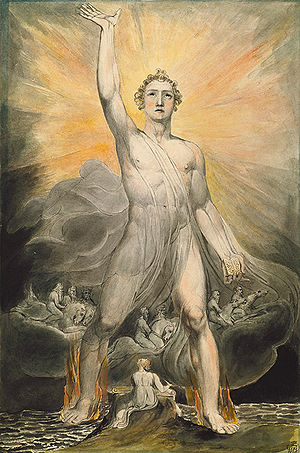
The Jewish philosopher Philo lived in Alexandria, Egypt, around the time of Jesus and Paul were said to have lived, and wrote many works arguing that the Bible stories were allegories of higher truths that had counterparts in Greek philosophy. One of the more striking features of Philo’s work is his concept of the Logos (or “Word”) of God. His discussions of the Logos find parallels in Gospel of John that begins with the Logos or Word of God existing with God, but also as God, and it was this Logos that created everything on God’s behalf. Philo’s discussion of the Logos or Word of God shares the same understanding as we find in John’s Gospel. Philo even calls the Logos “a Second God”.
Philo’s views are often considered esoteric and probably alien to the normal beliefs of the common Jews in Palestine and elsewhere (e.g. Casey). Some scholars (e.g. McGrath) go to great lengths to argue that when Philo spoke of a “second God” he was not really deviating from Jewish monotheism, and that modern readers simply need to adjust their definition of “monotheism” as it existed in early Judaism in order not to compromise the conventional wisdom about Judaism.
Margaret Barker, on the other hand, in The Great Angel: A Study of Israel’s Second God, has tackled these beliefs of Philo and compared them popular Aramaic translations of the Hebrew scriptures that in some cases date back to pre-Christian times. Continue reading “The Second God among Ancient Jewish Philosophers and Commoners”
